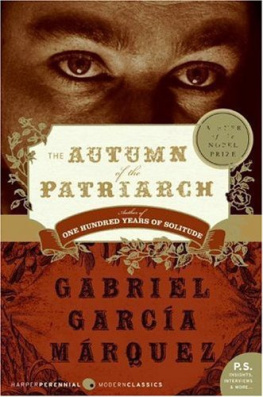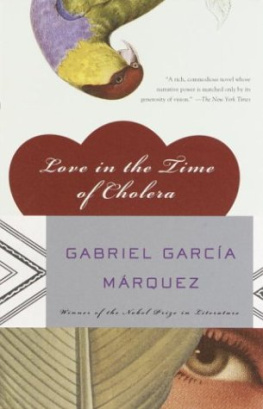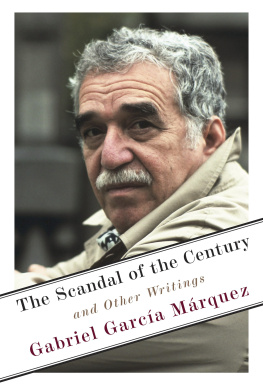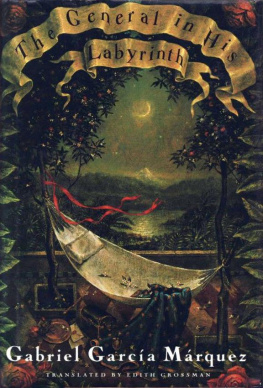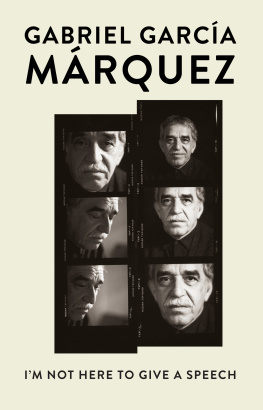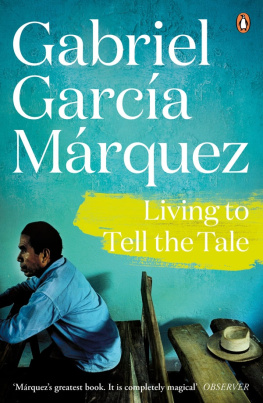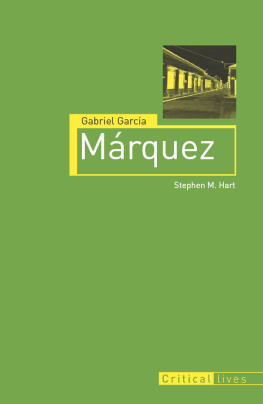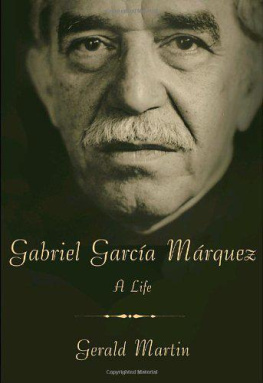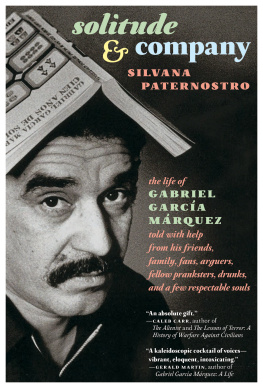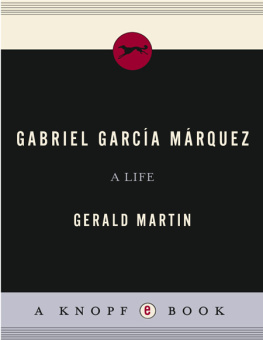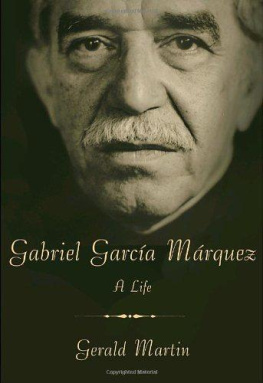THE AUTUMN OF THE PATRIARCH
GABRIEL GARCIA MARQUEZ
Translated from the Spanish by Gregory Rabassa
This book was originally published in Spain under the title
El Otono del Patriarca 1975 by Gabriel Garcia Mrquez.
[Scanners Note: Chapter numbers were added. Also, there are no paragraphs in the original text.]
OVER the weekend the vultures got into the presidential palace by pecking through the screens on the balcony
windows and the flapping of their wings stirred up the stagnant time inside, and at dawn on Monday the city
awoke out of its lethargy of centuries with the warm, soft breeze of a great man dead and rotting grandeur. Only then did we dare go in without attacking the crumbling walls of reinforced stone, as the more resolute had
wished, and without using oxbows to knock the main door off its hinges, as others had proposed, because all that was needed was for someone to give a push and the great armored doors that had resisted the lombards of
William Dampler during the building's heroic days gave way. It was like entering the atmosphere of another age, because the air was thinner in the rubble pits of the vast lair of power, and the silence was more ancient, and things were hard to see in the decrepit light. All across the first courtyard, where the paving stones had given way to the underground thrust of weeds, we saw the disorder of the post of the guard who had fled, the weapons
abandoned in their racks, the big, long rough-planked tables with plates containing the leftovers of the Sunday lunch that had been interrupted by panic, in shadows we saw the annex where government house had been,
colored fungi and pale irises among the unresolved briefs whose normal course had been slower than the pace of
the dryest of lives, in the center of the courtyard we saw the baptismal font where more than five generations had been christened with martial sacraments, in the rear we saw the ancient viceregal stable which had been
transformed into a coach house, and among the camellias and butterflies we saw the berlin from stirring days, the wagon from the time of the plague, the coach from the year of the comet, the hearse from progress in order, the sleep-walking limousine of the first century of peace, all in good shape under the dusty cobwebs and all painted with the colors of the flag. In the next courtyard, behind an iron grille, were the lunar-dust-covered rosebushes under which the lepers had slept during the great days of the house, and they had proliferated to such a degree in their abandonment that there was scarcely an odorless chink in that atmosphere of roses which mingled with the
stench that came to us from the rear of the garden and the stink of the henhouse and the smell of dung and urine ferment of cows and soldiers from the colonial basilica that had been converted into a milking barn. Opening a
way through the asphyxiating growth we saw the arches of the gallery with potted carnations and sprigs of
astromelias and pansies where the concubines' quarters had been, and from the variety of domestic leftovers and the quantity of sewing machines we thought it possible that more than a thousand women had lived there with
their crews of seven-month runts, we saw the battlefield disorder of the kitchens, clothes rotting in the sun by the wash basins, the open slit trench shared by concubines and soldiers, and in back we saw the Babylonian willows
that had been carried alive from Asia Minor in great seagoing hothouses, with their own soil, their sap, and their drizzle, and behind the willows we saw government house, immense and sad, where the vultures were still
entering through the chipped blinds. We did not have to knock down the door, as we had thought, for the main
door seemed to open by itself with just the push of a voice, so we went up to the main floor along a bare stone stairway where the opera-house carpeting had been torn by the hoofs of the cows, and from the first vestibule on down to the private bedrooms we saw the ruined offices and protocol salons through which the brazen cows
wandered, eating the velvet curtains and nibbling at the trim on the chairs, we saw heroic portraits of saints and soldiers thrown to the floor among broken furniture and fresh cow flops, we saw a dining room that had been
eaten up by the cows, the music room profaned by the cows' breakage, the domino tables destroyed and the felt
on the billiard tables cropped by the cows, abandoned in a corner we saw the wind machine, the one which
counterfeited any phenomenon from the four points of the compass so that the people in the house could bear up
under their nostalgia for the sea that had gone away, we saw birdcages hanging everywhere, still covered with the sleeping cloths put on some night the week before, and through the numerous windows we saw the broad and
sleeping animal that was the city, still innocent of the historic Monday that was beginning to come to life, and beyond the city, up to the horizon, we saw the dead craters of harsh moon ash on the endless plain where the sea had been. In that forbidden corner which only a few people of privilege had ever come to know, we smelled the
vultures' carnage for the first time, we caught their age-old asthma, their premonitory instinct, and guiding
ourselves by the putrefaction of their wing flaps in the reception room we found the wormy shells of the cows,
their female animal hindquarters repeated many times in the full-length mirrors, and then we pushed open a side door that connected with an office hidden in the wall, and there we saw him, in his denim uniform without
insignia, boots, the gold spur on his left heel, older than all old men and all old animals on land or sea, and he was stretched out on the floor, face down, his right arm bent under his head as a pillow, as he had slept night after night every night of his ever so long life of a solitary despot. Only when we turned him over to look at his face did we realize that it was impossible to recognize him, even though his face had not been pecked away by vultures,
because none of us had ever seen him, and even though his profile was on both sides of all coins, on postage
stamps, on condom labels, on trusses and scapulars, and even though his engraved picture with the flag across bis chest and the dragon of the fatherland was displayed at all times in all places, we knew that they were copies of copies of portraits that had already been considered unfaithful during the time of the comet, when our own
parents knew who he was because they had heard te from theirs, as they had from theirs before them, and from
childhood on we grew accustomed to believe that he was alive in the house of power because someone had seen
him light the Chinese lanterns at some festival, someone had told about seeing his sad eyes, his pale lips, his pensive hand waving through the liturgical decorations of the presidential coach, because one Sunday many years ago they had brought him the blind man on the street who for five cents would recite the verses of the forgotten poet Rubn Daro and he had come away happy with the nice wad they had paid him for a recital that had been
only for him, even though he had not seen him, of course, not because he was blind, but because no mortal had
ever seen him since the days of the black vomit and yet we knew that he was there, we knew it because the world went on, life went on, the mail was delivered, the municipal band played its retreat of silly waltzes on Saturday under the dusty palm trees and the dim street lights of the main square, and other old musicians took the places of the dead musicians in the band. In recent years when human sounds or the singing of birds were no longer heard
inside and the armored doors were closed forever, we knew that there was someone in government house because
Next page
